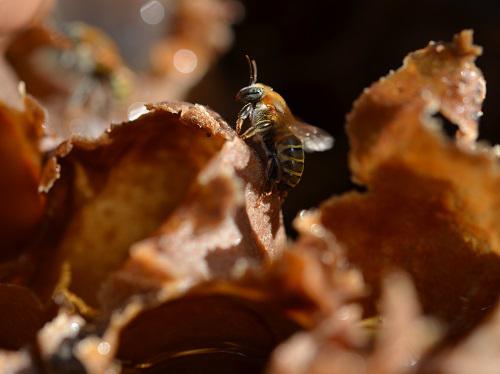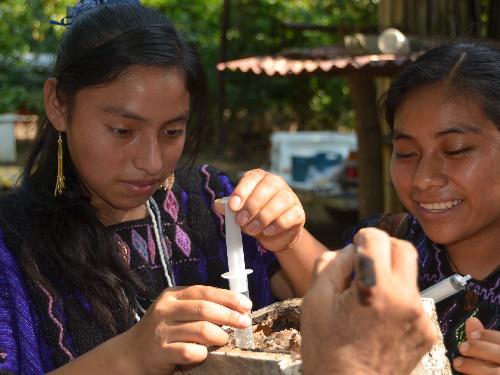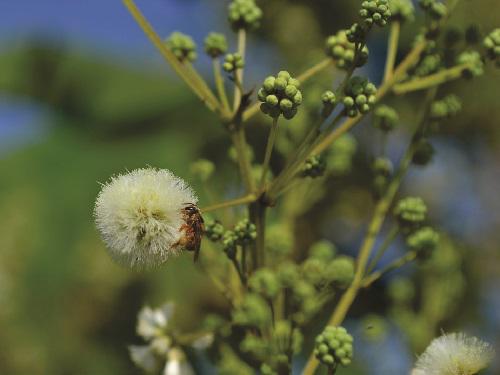Yliana Delfín Fuentes
We will create a stingless beekeeping school in the highlands of Chiapas, Mexico where participants will learn to manage and protect local stingless bee populations.

Melipona.
The precipitous decline of bee populations worldwide has been attributed to environmental causes such as deforestation, the indiscriminate use of pesticides, and climate change. For centuries, traditional stingless beekeeping practices in Latin America fostered a deep connection between native bees and their keepers. Though some of these traditions have been lost over time, a recent revival in stingless beekeeping offers hope for declining bee populations.

E cosecha miel.
There are nearly 50 stingless bee species native to Mexico, and 31 of them have been identified in Chiapas, a state in south-eastern Mexico that boasts abundant ecological and cultural diversity. The conservation of these bees is critically important not only for the survival of the species, but also for the ecosystems they support. We will collaborate with the alternative indigenous University of Bachajón to create a stingless beekeeping school in Bachajón, a Mayan Tseltal community in the highlands of Chiapas. Bachajón is located in a biodiverse mountainous region where subsistence farmers cultivate corn, beans, coffee, and the introduced honey bee Apis mellifera, while increasing pressure from intensive agriculture and hydroelectric and mining projects threatens the integrity of their land.

Bee Scaptotrigona pectoralis.
The stingless beekeeping school will provide students and community members with the opportunity to learn about the importance of stingless bees in the ecosystem, identify and analyse the socio-political and environmental forces that threaten their survival, and develop the skills necessary to preserve and protect both wild and managed stingless bee populations. Over the course of training, participants will construct a meliponario, or stingless bee apiary, which will serve as a learning center for future stingless bee conservation and management courses.
Our pilot workshop series will consist of eight sessions, each lasting two to three days, and will take place over the course of eight months with periodic field visits to participants’ home communities. Between sessions, workshop participants will complete field assignments such as identifying and photographing stingless bee nests in their communities and interviewing community elders to learn more about traditional beekeeping practices, the way the land once was, and the ways in which it has changed. Throughout the workshop series, participants will grow as stingless bee advocates, in tune with the needs of their colonies and prepared to help them prosper. They will learn to produce stingless bee honey using responsible, non-invasive methods, and they will raise awareness and brainstorm actions to protect wild bee populations as well.